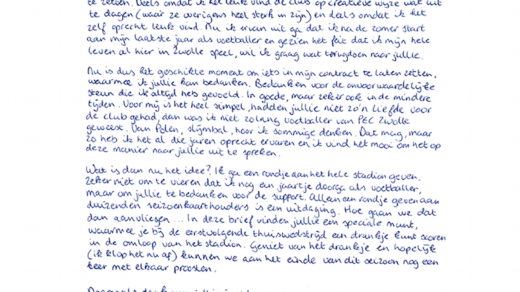| Host nation: Qatar Dates: 20 November-18 December Coverage: Live on BBC TV, BBC iPlayer, BBC Radio 5 Live, BBC Radio Wales, BBC Radio Cymru, BBC Sounds and the BBC Sport website and app. Day-by-day TV listings – Full coverage details |
And breathe.
A helter-skelter group stage featuring more shock results than ever before has now finished with a picture emerging of how this World Cup is unfolding.
There have been surprises and stellar performances across the groups and, with some of the main players coming into form, it should be an intriguing knockout phase.
So, what have been the main things to come out of the opening section of the tournament?
No side is safe from a shock result
Most of the favourites – barring Belgium and Germany – may have escaped their groups, but it’s not been a smooth ride.
The first upset came on day three when Saudi Arabia, ranked 51st in the world, stunned Argentina.
Not to be outdone, Japan followed suit a day later as they beat Germany despite falling behind to an early penalty, before repeating their comeback trick against Spain in the final game to top the group. In fairness, though, with the way Group E ultimately unfolded, perhaps the biggest surprise was Costa Rica beating Japan in their second game.
It seems we may have seen the fading of Belgium. Certainly their creaking backline was exposed by a vibrant Morocco performance and Roberto Martinez’s side, ranked second in the world, limped out of the tournament.
Even France and Brazil were not immune to a surprise result. Les Bleus’ 1-0 defeat by Tunisia may have come after Didier Deschamps made nine changes to his starting line-up, but it did reveal some cracks in the armour of the reigning world champions. The same applies to Brazil, who also made nine changes in their 1-0 loss to Cameroon.
In the end, nations from six continents made the knockout stages for the first time.
According to Nielsen Gracenote’s analysis, Cameroon’s victory over Brazil was the 12th upset (matches in which the winners’ chances of victory stood between 16.7% and 33.3%) or shock (less than 16.7%) of the tournament so far.
The 2022 World Cup has therefore featured more group-stage upsets and shocks than any of the other six 32-team tournaments, beating the previous record of nine in the 2002 and 2010 World Cups.
Argentina’s defeat by Saudi Arabia (8.7%) looked set to be the only shock of the group stage until it was joined by Cameroon’s win against Brazil (5.9%) on Friday, although the Selecao were already qualified and made 10 changes.
The big names are still performing…
Questions were asked about the superstars at this World Cup. Have they still got it? Can they do it in the desert?
The answer has been an emphatic yes from many of them.
After a frustrating start to the tournament, Lionel Messi has lit up Group C for Argentina, scoring a vital opening goal against Mexico and then dazzling against Poland – despite a penalty miss – to fire them through to the knockout stages.
Long-time rival Cristiano Ronaldo may have his troubles in club football, but he has been doing his talking on the pitch for Portugal. The 37-year-old showed all his nous to win and then score a penalty against Ghana, becoming the first man to score at five World Cups. He then jubilantly claimed he had glanced in the opener in the win over Uruguay – though in the end it proved only to have been a distracting but crucial run because it was decided Bruno Fernandes’ cross had not brushed his forehead.
Even Robert Lewandowski has joined the party. Poland have not exactly been exciting, but their main man has his first World Cup goal to help his country qualify for the last 16 the first time since 1986.
….but the next generation is emerging
So much has been written and said about Kylian Mbappe, but the France forward has not disappointed, producing electric performances and three goals in the group stage to ensure his side were the first through to the last 16.
Spain’s band of dynamic youngsters have also thrilled at times, with 17-year-old Gavi becoming the youngest World Cup goalscorer since Brazil legend Pele in their opening 7-0 win over Costa Rica.
Cody Gakpo of the Netherlands was already one of the most in-demand forwards in Europe, but the 23-year-old has potentially raised his asking price by becoming first man from a European country to score in all three group games since 2002.
Performances from Alphonso Davies of Canada, Ghana’s Mohammed Kudus and England duo Phil Foden and Bukayo Saka underlined their talent on the biggest stage.
And another England player, Jude Bellingham, has emerged as a huge star thanks to his goal and all-round display in the 6-2 victory over Iran, which helped the Three Lions top Group B.
Brazil are still the favourites
The world’s top-ranked team dismissed European opponents Serbia and Switzerland, and were already qualified by the time a much-changed side lost to Cameroon.
BBC pundit Chris Sutton described their 2-0 win over Serbia as “a display of real authority”, with Richarlison’s spectacular second goal was a typically skilful sign that Brazil are in town.
Losing Neymar to injury was disappointing, but with Vinicius Jr and Raphinha sparkling on the flanks and Gabriel Martinelli and Antony lying in reserve, their squad depth remains enviable.
Besides, the Paris St-German forward could return for the knockout stages to support a route to the final that may include games against Spain and Argentina.
With the evergreen Thiago Silva marshalling their backline, Casemiro in the form that has won him everything at club level and attackers who can score from anywhere, the five-time World Cup winners arguably remain the team to beat.
What else have we learned?
- Games last longer: So far, there have been 525 additional stoppage time minutes of football at the World Cup. That’s equivalent to almost six extra games. Fans are certainly getting their money’s worth.
- Fewer goals than the last couple of World Cups, especially in the first half: 2.5 per game is the lowest in the past three World Cups, with just 36% of those coming in the first half.
- Teams are taking fewer, better shots: 22.3 per match, but with a best all-time World Cup conversion rate of 11.2%, although a record low 8% of goals have come from outside the box.
- Teams are passing more: An average of 960 passes per game is more than any other tournament.
The vital numbers
| Most goals | 5 players | – | 3 |
| Most shots | Kylian Mbappe | France | 16 |
| Most assists | Harry Kane | England | 3 |
| Most chances created | Antoine Griezmann | France | 11 |
| Most touches | Rodri | Spain | 481 |
| Most touches in opposition box | Kylian Mbappe & Jamal Musiala | France & Germany | 35 |
| Most successful passes | Rodri | Spain | 431 |
| Most crosses | Christian Eriksen | Denmark | 30 |
| Most successful dribbles | Jamal Musiala | Germany | 19 |
| Most tackles | Achraf Hakimi & Ibrahima Konate | Morocco & France | 13 |
| Most interceptions | Pedro Miguel | Qatar | 8 |
| Most saves | Wojciech Szczesny | Poland | 18 |
| Most goals scored | England & Spain | 9 |
| Most shots taken | Germany | 69 |
| Best shot conversion rate | Costa Rica | 27% |
| Highest expected goals for | Germany | 10.4 |
| Most touches in opposition box | Germany | 140 |
| Fewest goals conceded | 6 teams | 1 |
| Fewest shots faced | Argentina | 11 |
| Best save percentage | Netherlands | 91% |
| Lowest expected goals against | Argentina | 0.7 |
| Best expected goal difference | Germany | 7.3 |
| Most possession | Spain | 77% |
| Most crosses (including corners) | Mexico | 80 |
| Most successful dribbles | Canada & Germany | 31 |
| Most tackles | France | 77 |
| Most interceptions | Iran | 42 |

Get the latest results and goal notifications for any team at the Fifa World Cup by downloading the BBC Sport app: Apple – Android – Amazon


Get your daily dose of Fifa World Cup reaction, debate & analysis with World Cup Daily on BBC Sounds




